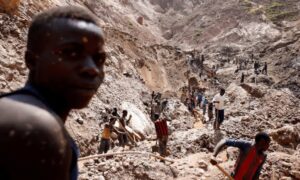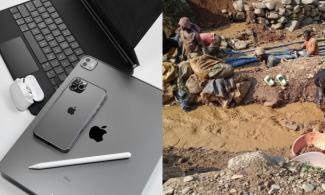The Democratic Republic of Congo (DRC) has issued a formal desist notice to tech giant Apple, accusing the company of utilizing minerals obtained through illegal means from the country’s war-torn eastern region in the production of its devices.
The accusations, outlined in a document seen by AFP, assert that Apple’s products, including Macs, iPhones, and others, are tainted by the blood of Congolese people due to their alleged association with minerals acquired through illicit channels.
The notice, filed by the DRC’s Paris-based lawyers, warns of potential legal action if Apple persists in its purported use of minerals sourced from the conflict-ridden region.
According to the DRC’s legal representatives, minerals extracted from the country are transported to neighboring Rwanda, where they are laundered and integrated into the global supply chain for manufacturing.
The DRC, along with the UN and Western countries, has accused Rwanda of supporting rebel groups, including the March 23 Movement (M23), in an effort to control the region’s abundant mineral resources.
Despite Rwanda’s denial of these allegations, the DRC’s lawyers assert that Apple’s technology is made with minerals sourced from a region plagued by grave human rights violations, including sexual violence, armed attacks, and rampant corruption at mining sites.
Also, read; Tanzania Shuts Down Five Hydroelectric Stations to Reduce Excess Electricity in the National Grid
In response to the accusations, Apple referenced statements from its 2023 annual business report regarding the use of so-called conflict minerals, stating that their due diligence efforts found no evidence linking their supply chain to the financing or support of armed groups in the DRC or neighboring countries.
Recent clashes between rebel groups, government forces, and neighboring Rwanda have intensified tensions in the eastern DR Congo, with reports of bombings and escalating violence around strategic towns like Sake.
The conflict underscores the complexity of the situation and the challenges faced by companies operating within regions affected by armed conflict and mineral exploitation.
As the accusations against Apple unfold, the spotlight remains on the responsibility of multinational corporations to ensure ethical sourcing practices and respect for human rights in their supply chains.
The allegations against Apple highlight the need for increased transparency and accountability in the global trade of minerals, particularly those sourced from conflict-affected regions like the DRC.

